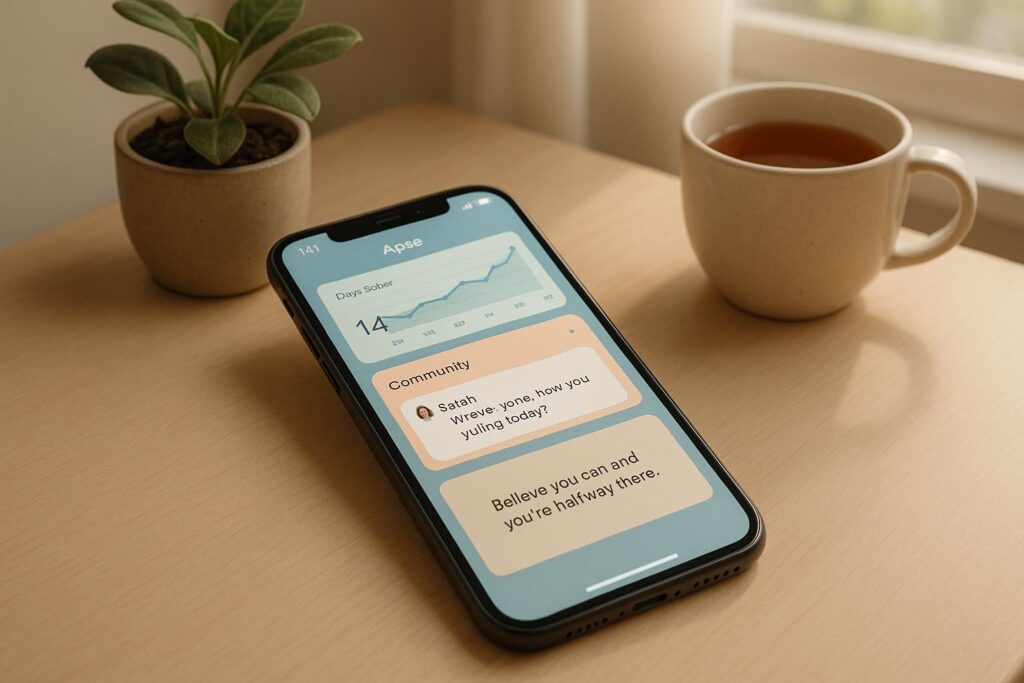Our greatest glory consists not in ever falling but in rising every time we fall. ~ Oliver Goldsmith
Recovery process is when a person continually attempts to overcome an addiction or condition that affects their well-being and daily life.
People struggle with all types of addictions, from drug addiction to gambling addiction, sex addiction, binge eating /bulimia, compulsive buying, anorexia, and even self-mutilation. It covers a very wide territory.
Nonetheless, read on to learn what recovery means.
What is recovery?
Different individuals describe their recovery periods differently. The National Institute on Drug Abuse (NIDA) defines recovery as the process of change where people improve their health and well-being and live self-directed lives, striving to reach their full potential.
Others may define recovery as a remission period where they fight to overcome their illnesses and substance use disorders. More often than not, recovery is confused with sobriety. There is a fine line between recovery and sobriety.
What is the difference between recovery and sobriety?
It would be remiss of us not to define sobriety while defining recovery. So when can one use the term “sobriety,” and when is “in recovery” appropriate?
Staying sober, or sobriety is about abstaining from harmful substances that will affect your overall health and daily life. On the other hand, recovery is life after an encounter with drug abuse disorders, that is, your lifestyle after substance addictions.
What does it mean to be in recovery?
To be in recovery does not mean leading a perfect lifestyle. Neither does it mean that once you have identified your problem with drug addiction, you’re healed from the disease and can embark on your everyday life.
Healing from addiction doesn’t come right away. It is an everyday challenge. This is what it means to be in recovery.
It is first accepting that you have a problem that needs fixing and actively seeking ways to correct it. Therefore, anyone in recovery is actively receiving treatment for their addictions, mental health, or substance abuse disorders and reforming their lives regarding personal relationships, finances, employment, etc.
During this period, they deliberately choose to stay clean. There are various programs established to help you during recovery.
Types of recovery programs
Peer support groups
These are free groups where recovering addicts get support from others far along in their recovery. Alcoholics Anonymous was the first 12-step program developed for recovering addicts.
The tremendous progress reported by this AA group became an inspiration for other similar support groups, such as:
- Narcotics Anonymous (NA) for addicts struggling with other drug addictions besides alcohol.
- Sex Addicts Anonymous (SAA) for recovering sex addicts.
- Eating Disorders Anonymous (EDA) for addicts with anorexia, bulimia, or other food disorders.
- Gambling Anonymous (GA) for gambling addicts.
- Co-Dependents Anonymous (CoDA) for those manifesting unhealthy relationship patterns.
- Secular Organizations for Sobriety (SOS).
- Women for Sobriety.
- SMART recovery.
- LifeRing Secular Recovery.
What happens in peer support groups?
These peer support groups encourage participants to confront their addictions and fears through self-empowerment activities and provide them with tools to change their negative thought.
Members are motivated to remain positive and committed to lifelong sobriety through:
- Living a balanced, healthy life and making the right decisions.
- Managing thoughts, emotions, and behaviors effectively.
- Maintaining motivation to be better.
- Handling cravings to use.
Therapy
Drug therapy programs offer counseling that can help uncover the underlying contributors to addiction. People abuse drugs for different reasons; some do it as a recreational sport, others due to past trauma, to alleviate stress, and others due to peer pressure.
All these underlying reasons will be addressed in drug counseling treatment and help the addict develop coping skills through their recovery journey.
Mindfulness
Living a mindful life is one of the most crucial tools one should have in their recovery journey. Mindfulness involves staying aware and entirely in control of one’s thoughts and emotions; it involves acknowledging past experiences with addiction but staying above cravings, stress, or other triggers that may warrant a relapse.
The following affirmations are meaningful during mindfulness:
- I am an addict.
- I am a recovering addict.
- I am clean.
- I choose to stay sober.
Is recovery over when I relapse?
This is a common question in any addict’s life. Just because one is clean and sober does not mean they are cured of their addictions.
No matter how far along one is in sobriety, it is possible to relapse. Studies show that 40-60% of addicts relapse after their addiction treatment. Similarly, a good 90% of gambling addicts relapse during their treatment.
Nonetheless, relapses are a part of recovery. They are not a sign of failure but only prove how hard you work to regain control of your life.
How long does recovery take?
Recovery is not time-bound. It is a life-long journey. Therefore, go easy on yourself once you slip up once or twice but always make sure you are working toward a better tomorrow. A drug-free tomorrow.
It is common to feel like recovery is taking longer than expected. Everyone’s journey is unique. The beauty is that you are slowly redefining your life, allowing treatment plans and therapies to change you into a responsible person.
One day you will realize the cravings aren’t as bad as they used to be, and your feelings no longer dictate your self-esteem.
The most important thing to remember is to stay connected to your sponsors, therapists, or persons far along in recovery who can be good role models. Someone you can talk to on dark days and will help put yourself back together.
Visit our site to learn how different drug addictions affect your health and well-being.


